Last night I paced the Bismarck’s bridge as she swapped broadsides with The Mighty Hood. I endured Swordfish attacks, and braved mountainous seas in the Denmark Strait. I watched the plucky Prinz Eugen vanish beneath the waves achingly close to the safe haven of Brest.
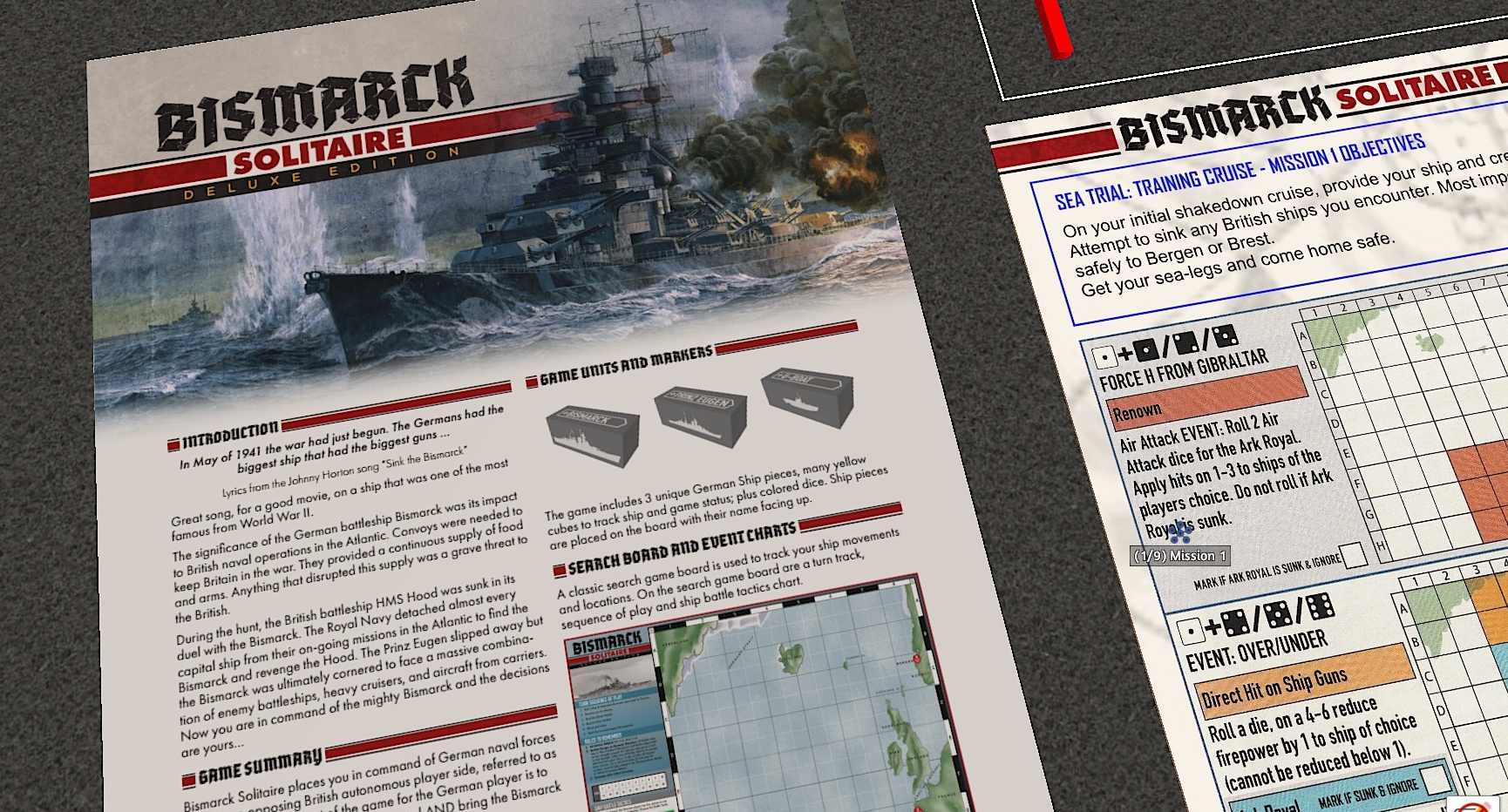
If you want a cardboard copy of Bismarck Solitaire, a fast-playing, easy-to-grasp naval wargame designed for solo play, you’ll need to shell out around twenty quid. If you’re content to play it on your PC and own the splendid Tabletop Simulator, there’s no entrance fee.
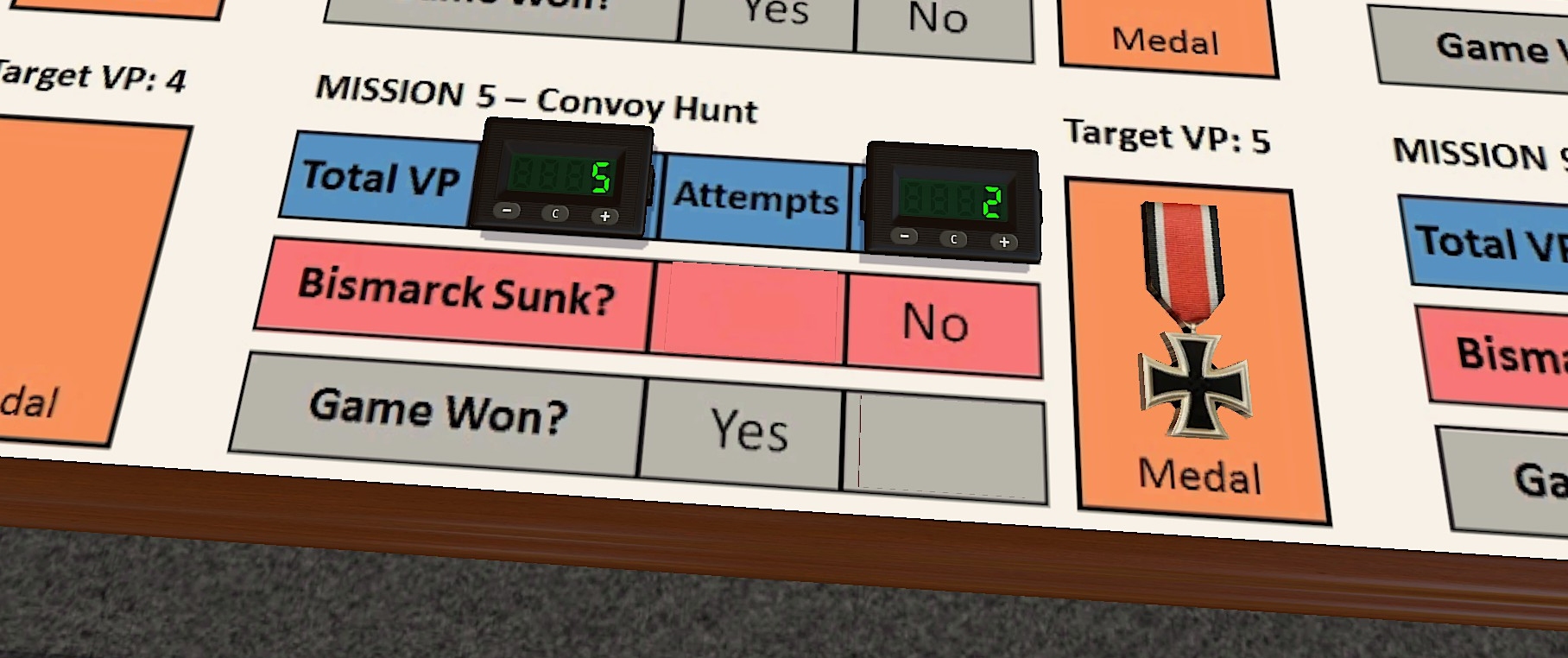
Released last month, Max Eisert’s TS module makes learning and playing Bismarck Solitaire ridiculously easy. Once you’ve perused the seven-page manual (or watched the video embedded below) and tapped a number key to select one of the game’s nine scenarios, you’re ready to go.
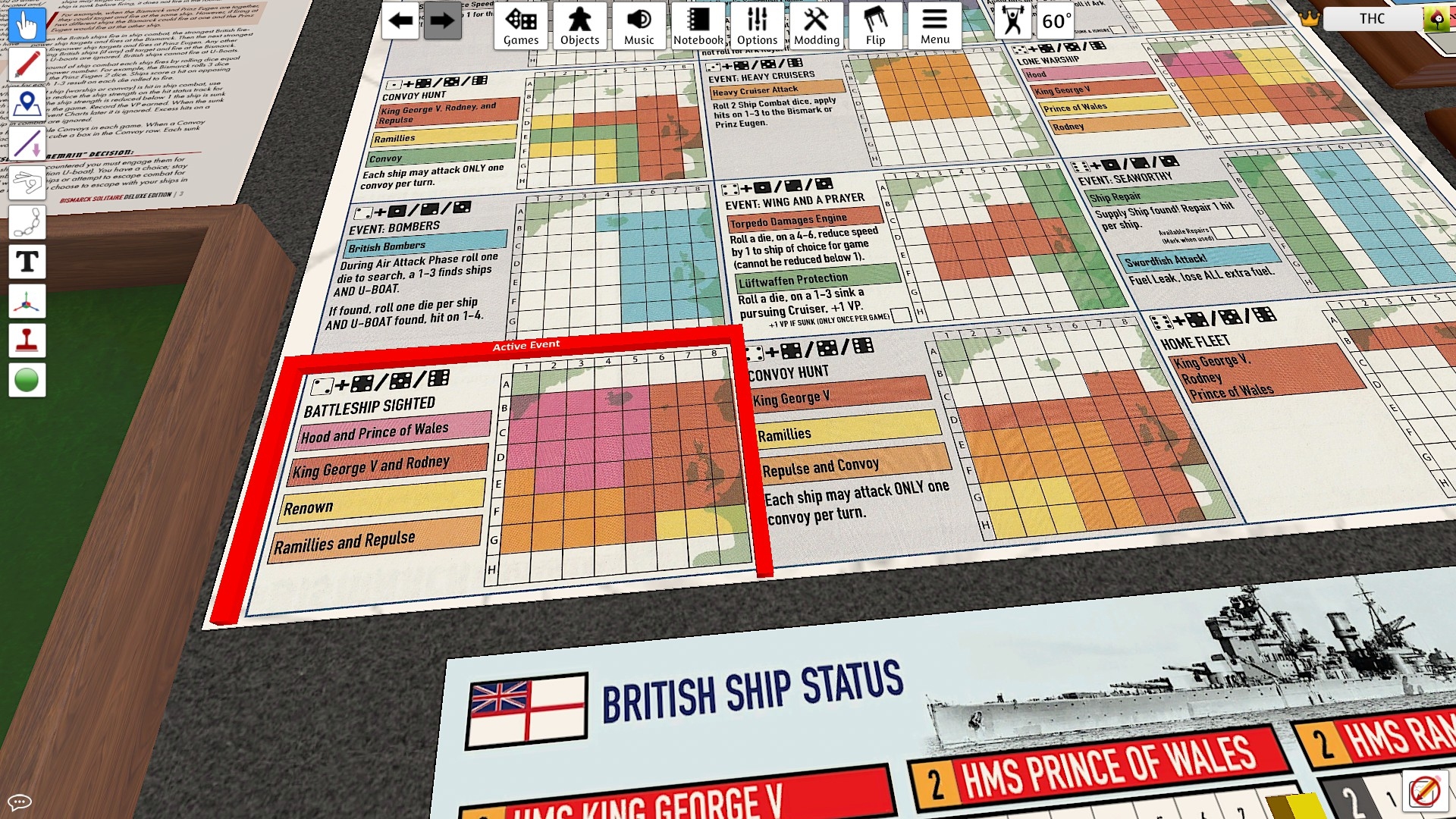
Every turn begins with a crucial randomly generated event. Because each event only effects certain grid squares on the board and these areas are clearly displayed on a tabletop crib sheet, by choosing to operate in particular areas and following carefully considered courses, the player, can, to some extent, shape their own destiny.
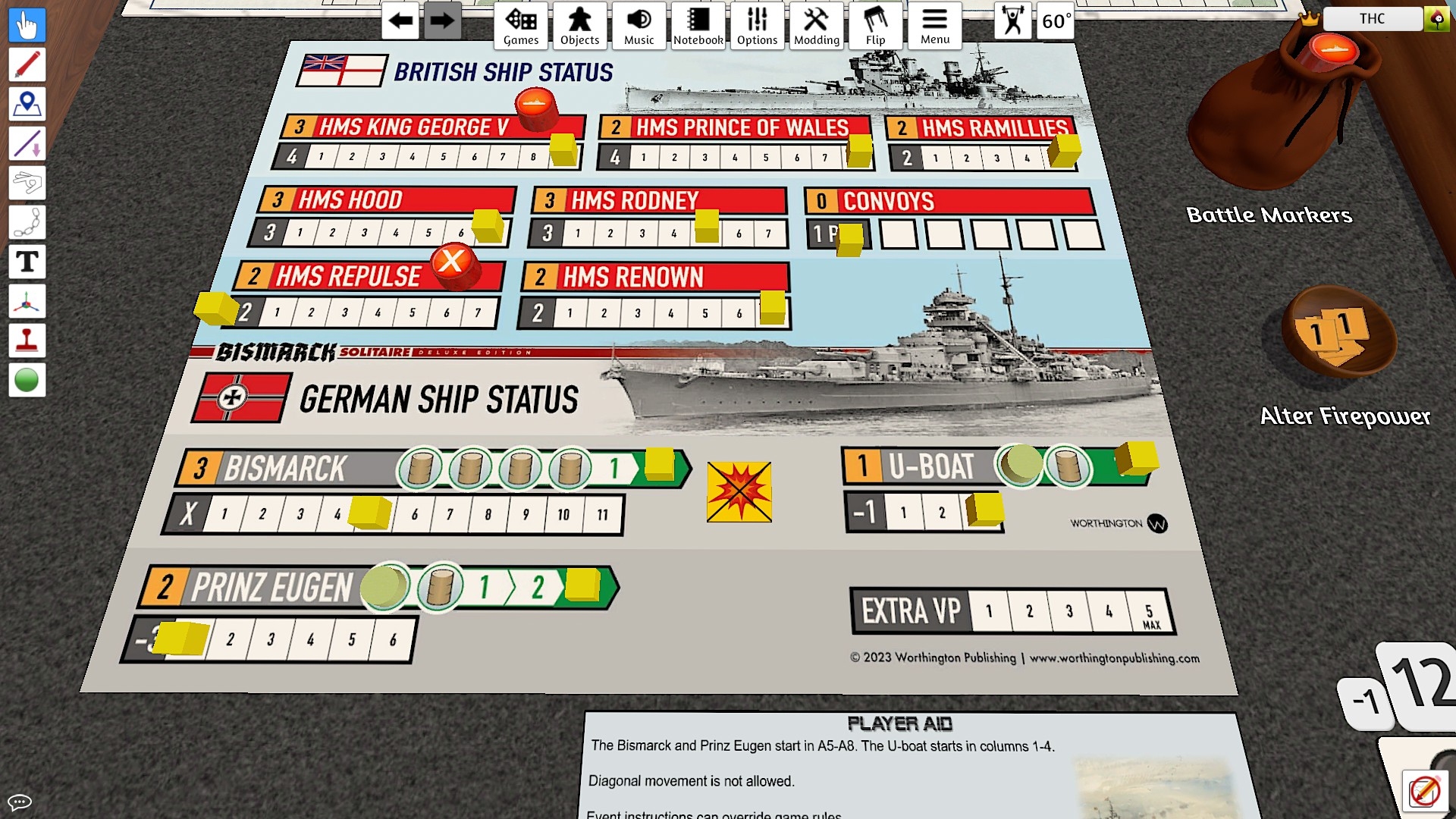
The Allied convoys that ply the Atlantic are easy pickings for the three Kriegsmarine units (Bismarck, Prinz Eugen, and a U-boat) under your control, but to reach the zones they traverse you must risk encounters with a number of formidable British warships and taskforces.
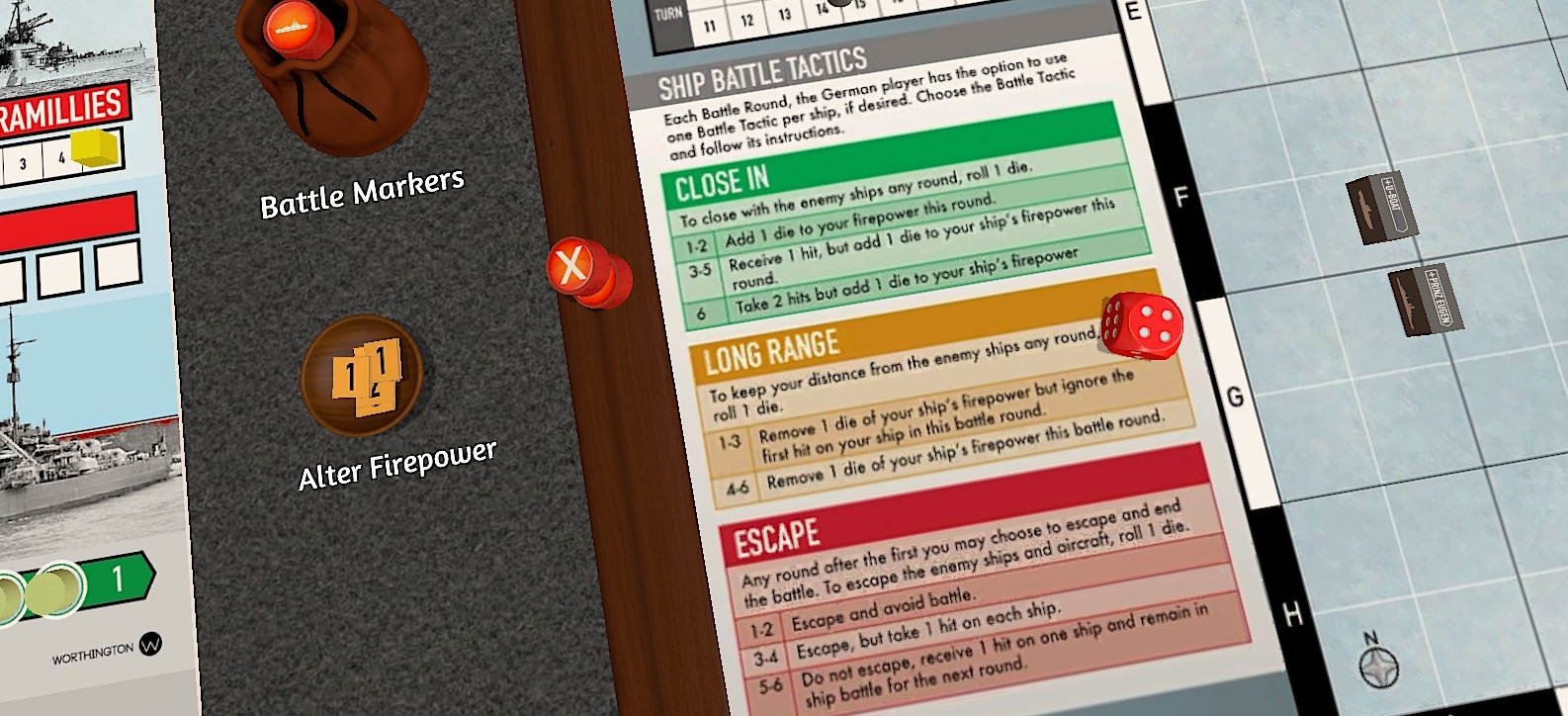
When you find yourself in a shaded chart square at the start of a turn and the linked event indicates the presence of one or more enemy surface vessels, the game’s simple yet engaging combat system comes into play. Do you want to flee? Do you wish to try and close the distance between you and the target or attempt to take advantage of your superior gun range? There are various ways to handle scraps.
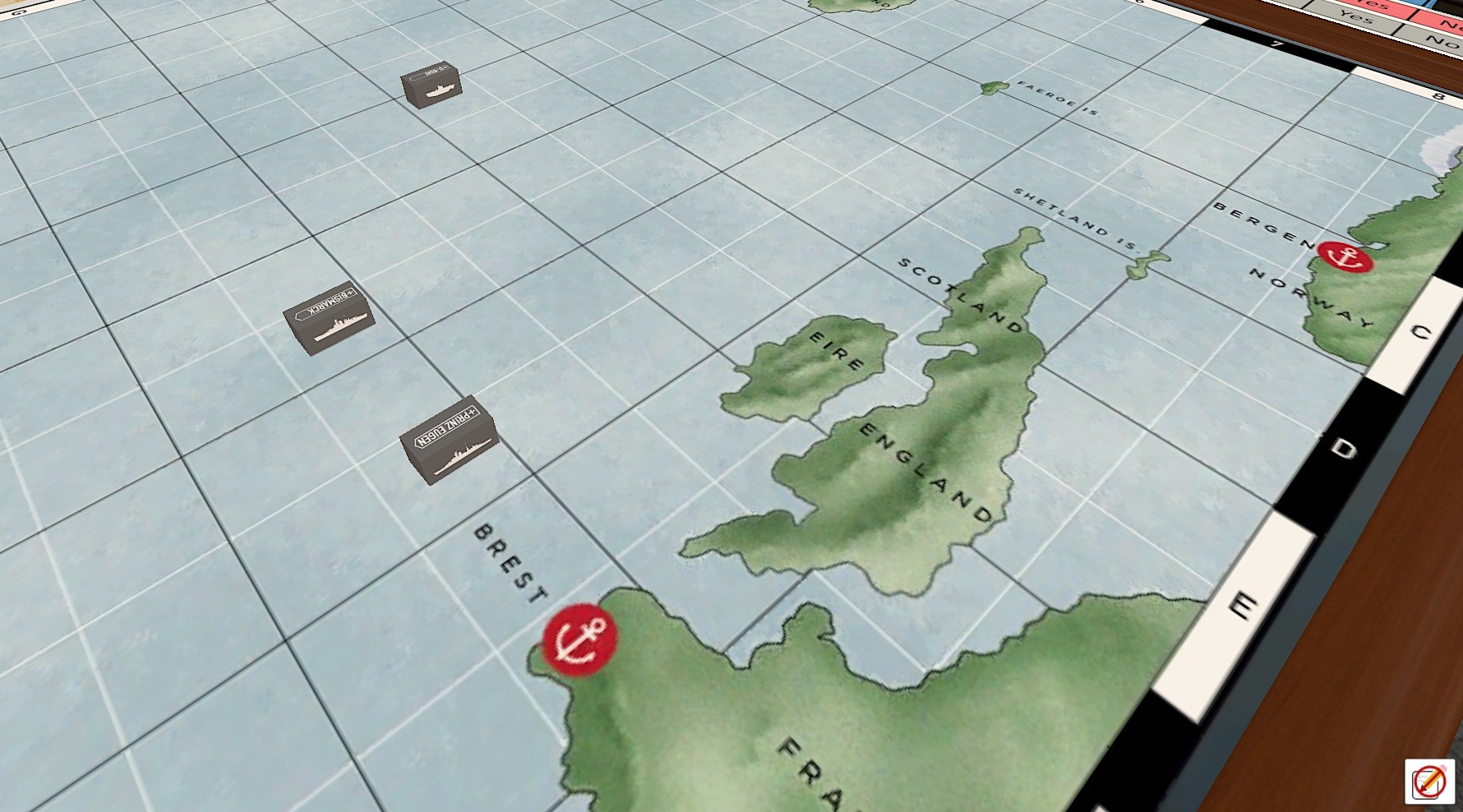
Although damage is crudely modelled (vessels have hitpoints), the decision-spiced fuel, attack, and escape mechanics (Allied ships will also try to skedaddle it if they don’t like the odds) and the knowledge that you must get back to Brest or Bergen with the requisite number of Victory Points under your belt armour to win a mission, ensure games regularly bring to mind the real Operation Rheinübung.

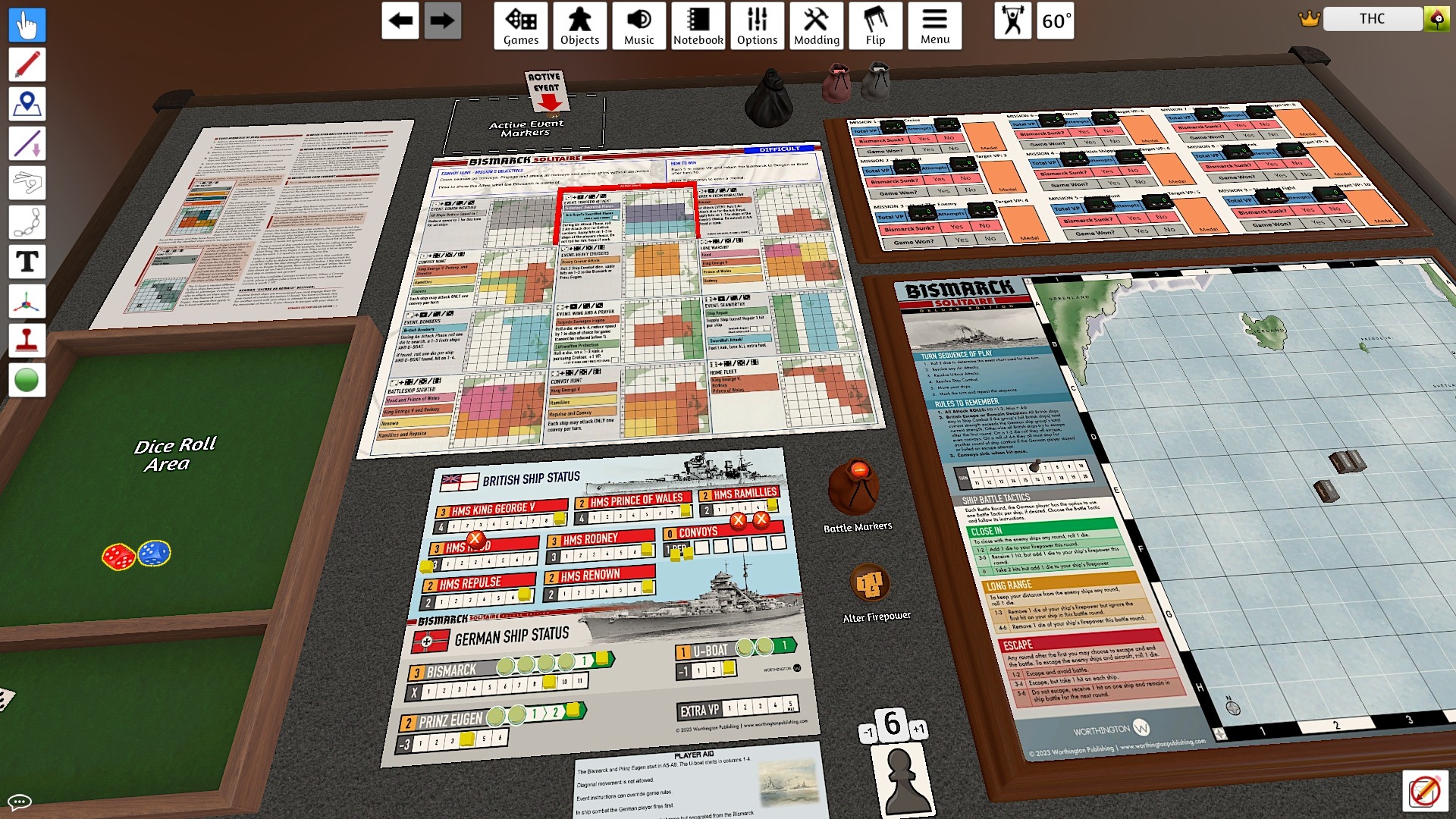
I am afraid, if there are no authorizations, here we are literally straddling across the piracy border. As you say there is no entrance fee, but the TTS module author took everything from the game. You do not need anything else to play. Considering it is a solitaire game, and TTS main objective should be allowing remote play, I am even more dubious. Now if the designer and publisher are okay with that and authorized it, I have no issue. But doing it without permission is indeed piracy, and should not be advertised.
I remember in the past there was a lot of debate around cyberboard and vassal if they were crossing into piracy. Of course neither of these applications implemented rules and you were not provided with paper rules except if you were buying the original game (or the original publisher put them on the net). Still some publisher like Dan Verssen sell Vassal Modules for their solitaire games, their reason is that being solitaire Vassal is not required for remote play, but has become a shortcut for piracy. Enter Tabletop Simulator. TTS modules have scripts and also more often than not full rules. If the designer/publishers have authorized it, I am happy with it, if not it is basically piracy (despite a friend claiming that it is not).
Of course you can make a reaosnable case that for 2 or more players games it is not piracy because it is added value to the game because it allows remote play. Fine by that, To the Strongest’s author Simon Miller actually said just that and actually used TTS to run tournaments in the lock-down age, but To the Strongest modules have nor rules, so you need to buy them from him. By the other hand several Too Fat Lardies sets have been ported to TTS with full rules included, and I am not so sure if Richard Clarke and Nick Skinner are so happy, because you can then rip the rules… and get them for free… so even for two player some discretion should be applied.
But for solitaire boardgames? Without explicit permission It is piracy plain and simple, and should be considered that way, and not be advertised on reputable blogs like Tally Ho Corner!
Best,
Arrigo
Fair point. If Bismarck Solitaire’s designers or publishers are unhappy about the module (which, depending on one’s perspective, is either an excellent advert/demo for the £20 ‘bookgame’, or a sales-denting free alternative) I’ll bin this post.
I have both this gamebook and Waterloo Solitaire. I’m not sure that I would see their appeal in a digital format. They’re both clever because they can be played entirely from the book and a pair of dice (or a dice app on your phone), and much of the fun is the tactile compactness of them. I heartily recommend both in their book forms.